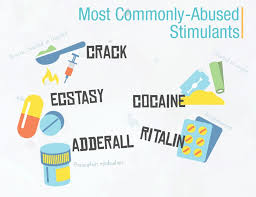What are drugs?
- Learning for Life and Work
- May 11, 2020
- 2 min read
Updated: 4 days ago
Drugs are substances that affect/alter the way the body or mind works. When we think about drugs, we tend to think about the drugs that are illegal and dangerous for a person to take.
However, the reality is that drugs are everywhere and may be a part of a person's life. For example, coffee and prescription drugs (medicine that would be prescribed by a doctor) are legal and when taken as directed, they are usually safe.
Although, when legal drugs, such as prescription drugs, are abused and more is taken than is recommended/directed then they affect the body and the mind in ways similar to illegal substances.

What kinds of prescription drugs are there?
There are three types:
Opiates - (may be used for relieving pain) - For example Codeine
Depressants - (may be used to help people relax) - For example Valium
Stimulants - (may be used to help with concentration) - For example Ritalin
What are the four main categories of drugs?
1. Opiates
These make you feel drowsy and sleepy can be very addictive. Examples of opiate drugs include:
Heroin
Morphine
Codeine
2. Depressants (sedatives)
These make you feel relaxed and chilled out and can be very addictive. Examples of depressant drugs include:
Alcohol
Cannabis
Tranquillisers
3. Stimulants
These make you feel alert, active, focused and talkative and can be very addictive. Examples of stimulant drugs include:
Caffeine
Ecstasy
Cocaine
Nicotine
4. Hallucinogens
These may make you feel out-of-body, have a distorted sense of space and reality and can be very addictive. Each experience with an hallucinogen can vary with some experiences being more intense and frightful than others. Examples of hallucinogen drugs include:
LSD
Magic Mushrooms
Ketamine
New Psychoactive Substances (NPS)
These are known as 'legal highs', even though they are illegal. These drugs are made to try to mimic the effects of drugs like cocaine, cannabis and ecstasy. They are sold in different forms like powders or pills or liquids.
They are banned in the UK and are considered illegal because the combination of chemicals used in NPS are not tested, therefore people do not know how they are going to react when they take NPS.
Some side-effects of taking NPS may include paranoia, seizures, coma and death.

QUESTIONS YOU COULD BE ASKED ON THIS
Explain one risk of taking a new psychoactive substance. (2marks)
It can cause severe and unpredictable health effects, such as heart palpitations or seizures. (2 marks)





Comments